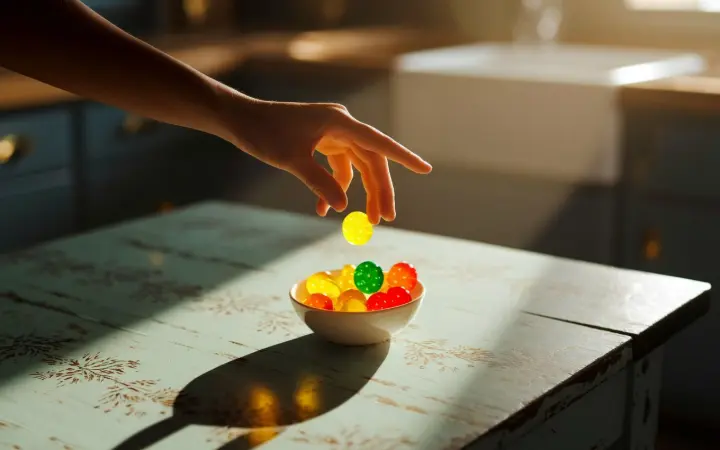When we think about bone health, we often picture older adults dealing with osteoporosis or fractures. But the truth is, the foundation for strong bones in adulthood is laid much earlier—during childhood and adolescence. This is why calcium supplements with vitamin D are becoming a critical part of the nutritional conversation for kids and teens.
So, how do these two nutrients work together to protect bones, and can they really prevent issues decades down the line? Let’s break it down.

Why Bone Health Starts Early
Children and teenagers are in their peak bone-building years. In fact, most people reach about 90% of their peak bone mass by age 18 for girls and 20 for boys. After this point, bones don't get much denser—so missing out on key nutrients early on can lead to weaker bones and a higher risk of fractures and osteoporosis later in life.
Calcium is the major mineral stored in bones, while vitamin D plays the role of the gatekeeper. Without enough vitamin D, the body struggles to absorb calcium properly, no matter how much is consumed.
That’s why experts recommend the duo: calcium supplements with vitamin D are more effective than either alone when it comes to maintaining bone strength.
How Calcium and Vitamin D Work Together
Think of calcium as the building blocks of your child's bones. Every time they run, jump, or play, those bones are being strengthened. But calcium needs vitamin D to actually be absorbed from the gut into the bloodstream.
Vitamin D acts like a helper hormone. It tells the body to start absorbing calcium and move it to where it's needed—your child's developing bones and teeth.
Even kids who eat a balanced diet sometimes fall short. Picky eating, lactose intolerance, food allergies, or low exposure to sunlight can all affect how much calcium and vitamin D a child gets. In these cases, supplements can help bridge the gap.
Signs of Deficiency to Watch Out For
Some warning signs of poor bone health in children may include:
- Frequent bone fractures from minor falls
- Leg pain or muscle cramps
- Delayed physical growth
- Dental issues like weak enamel
If your child experiences these symptoms or lacks sufficient dairy, leafy greens, or sun exposure, consider speaking to a pediatrician about calcium supplements with vitamin D.
If your child already takes vitamin d liquid drops for kids, especially in toddler or preschool years, it's a great start. But as they grow, adding calcium ensures you're supporting both bone structure and density—especially if they’re entering a rapid growth phase.
The Role of Diet—and Where It Falls Short
While food should always come first, modern diets don’t always make it easy. Many kids prefer processed or fast food over calcium-rich leafy greens or fortified cereals. And vitamin D is even trickier—it's mostly found in fatty fish or fortified milk, and we get the rest through sunlight.
But with increased indoor time, screen use, and sunscreen application, vitamin D deficiency is on the rise—even in sunny regions.
That’s why even active, well-fed children may benefit from a smart supplementation plan that includes calcium supplements with vitamin D, especially during the bone-building years.
Supplementing for Long-Term Health
Research shows that achieving optimal peak bone mass in youth can reduce the risk of osteoporosis and fractures in adulthood. That’s because your bones act like a “bank.” The more calcium you deposit when you’re young, the more you have in reserve when you start naturally losing bone mass with age.
By supplementing early—especially when dietary or environmental factors fall short—you’re investing in your child’s future strength and resilience.
If your child is also taking the best kids multivitamin with omega, that’s a plus. Omega-3s can help with inflammation and nutrient absorption, which complements bone health. Similarly, probiotic gummies support gut health, which plays a surprisingly important role in calcium and vitamin D absorption.
Choosing the Right Supplement
Not all supplements are created equal. Look for:
- D3 (cholecalciferol) instead of D2—it's more bioavailable
- Age-appropriate dosing for calcium and vitamin D
- No artificial colors or sweeteners
- Easy-to-chew or swallow options like gummy supplements for young kids
If you're combining multiple supplements (like vitamin c gummies or best omega 3 gummies for kids), check the labels to ensure there’s no overlap in dosages.
When to Start Supplementing?
- Toddlers and preschoolers may benefit from liquid drops or chewables
- School-aged kids and teens often need more calcium due to growth spurts and sports
- Vegetarian or dairy-free diets are especially likely to fall short on calcium
Consult a healthcare provider before beginning any supplement routine, but in most cases, a daily dose of calcium supplements with vitamin D can be a safe and effective way to safeguard bone health.
Final Thoughts
We often wait until adulthood to think about bone health—but by then, it might be too late to build it. Providing calcium supplements with vitamin D during childhood sets your child up with strong bones for life.
When paired with other smart choices—like a best kids multivitamin with omega, a clean Gummy supplement format, or probiotic gummies to support digestion and absorption—you're not just patching deficiencies, you're laying the groundwork for a stronger, healthier future.
FAQs
Q: Can my child get enough calcium and vitamin D through food alone?
Possibly, but many kids fall short due to dietary preferences, allergies, or limited sun exposure.
Q: What’s the best time to give calcium supplements?
With meals, especially breakfast or dinner. It helps with absorption and avoids stomach upset.
Q: Are there risks in giving too much vitamin D or calcium?
Yes. Always stick to age-recommended doses and consult a pediatrician if combining supplements.
Q: Is it safe to take calcium supplements with vitamin D every day?
Yes—when dosed properly, daily use can safely support bone development and long-term health.
Q: Should I use gummies, liquids, or tablets?
Choose based on your child’s age and preferences. Gummy formats are usually easiest for kids to take consistently.